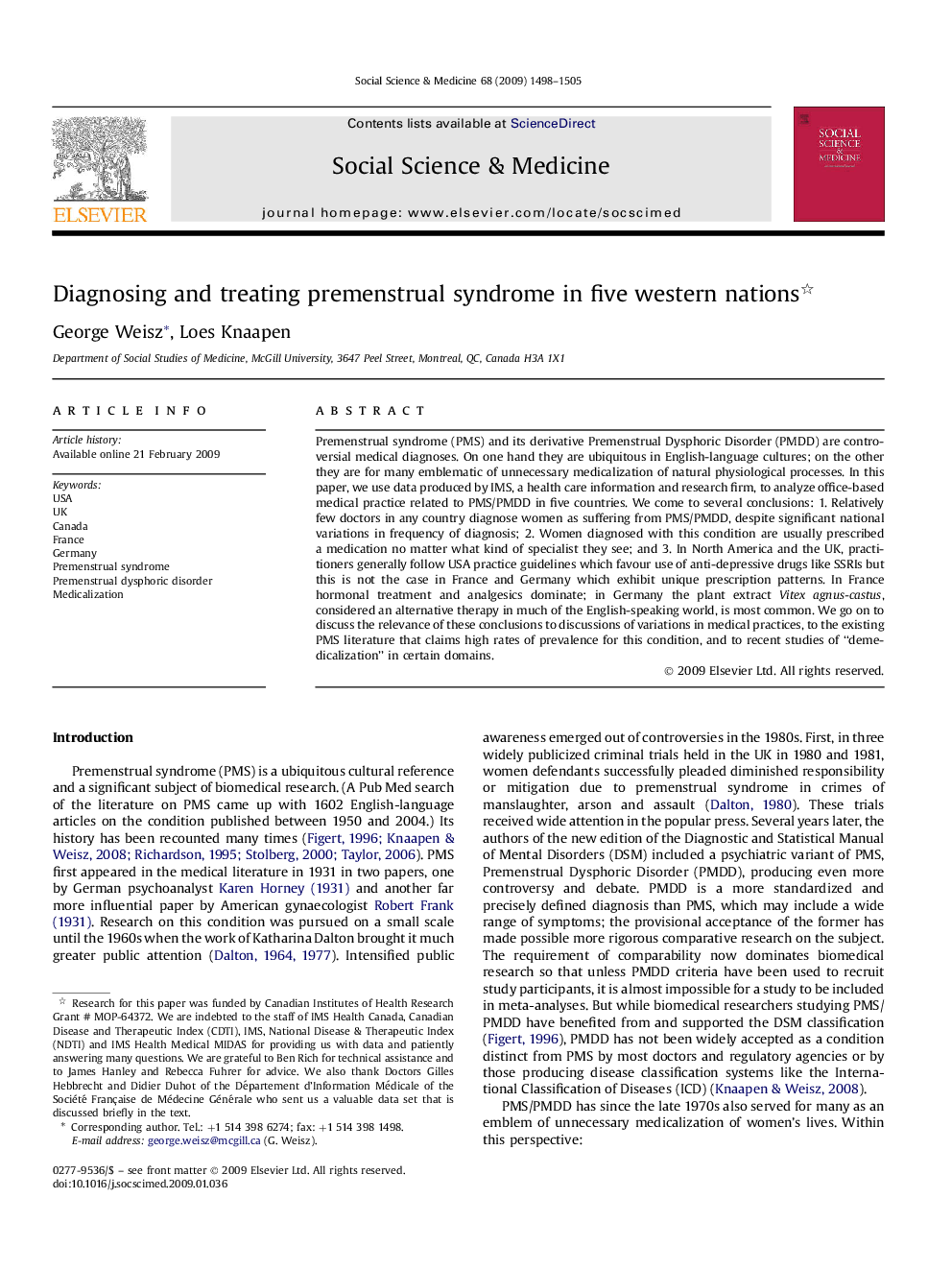| Article ID | Journal | Published Year | Pages | File Type |
|---|---|---|---|---|
| 953696 | Social Science & Medicine | 2009 | 8 Pages |
Premenstrual syndrome (PMS) and its derivative Premenstrual Dysphoric Disorder (PMDD) are controversial medical diagnoses. On one hand they are ubiquitous in English-language cultures; on the other they are for many emblematic of unnecessary medicalization of natural physiological processes. In this paper, we use data produced by IMS, a health care information and research firm, to analyze office-based medical practice related to PMS/PMDD in five countries. We come to several conclusions: 1. Relatively few doctors in any country diagnose women as suffering from PMS/PMDD, despite significant national variations in frequency of diagnosis; 2. Women diagnosed with this condition are usually prescribed a medication no matter what kind of specialist they see; and 3. In North America and the UK, practitioners generally follow USA practice guidelines which favour use of anti-depressive drugs like SSRIs but this is not the case in France and Germany which exhibit unique prescription patterns. In France hormonal treatment and analgesics dominate; in Germany the plant extract Vitex agnus-castus, considered an alternative therapy in much of the English-speaking world, is most common. We go on to discuss the relevance of these conclusions to discussions of variations in medical practices, to the existing PMS literature that claims high rates of prevalence for this condition, and to recent studies of “demedicalization” in certain domains.
